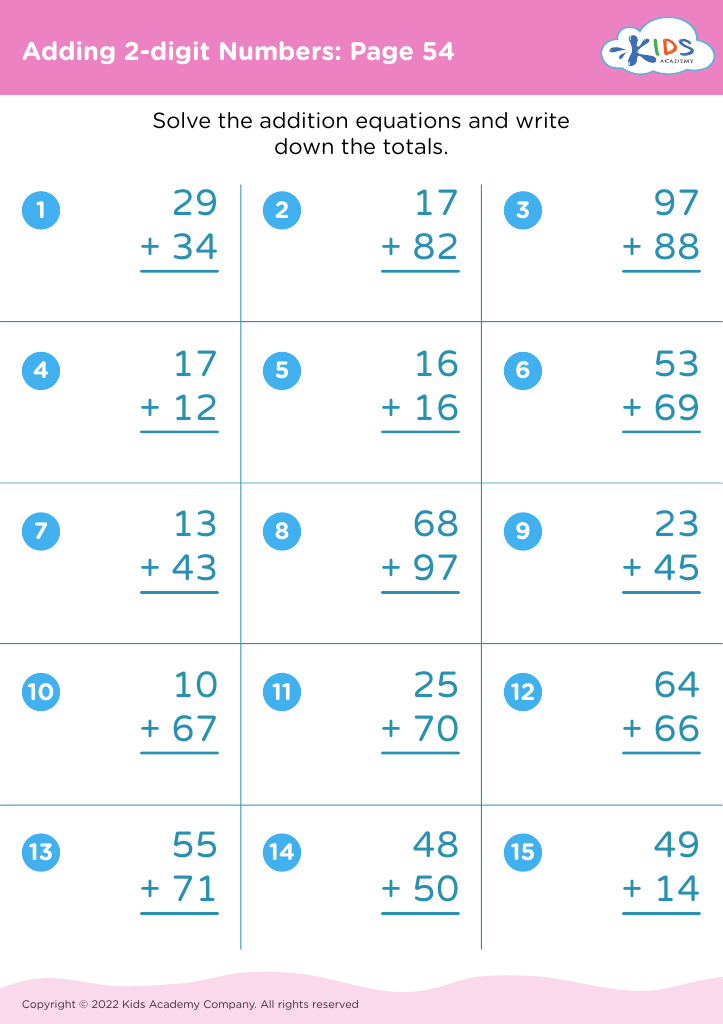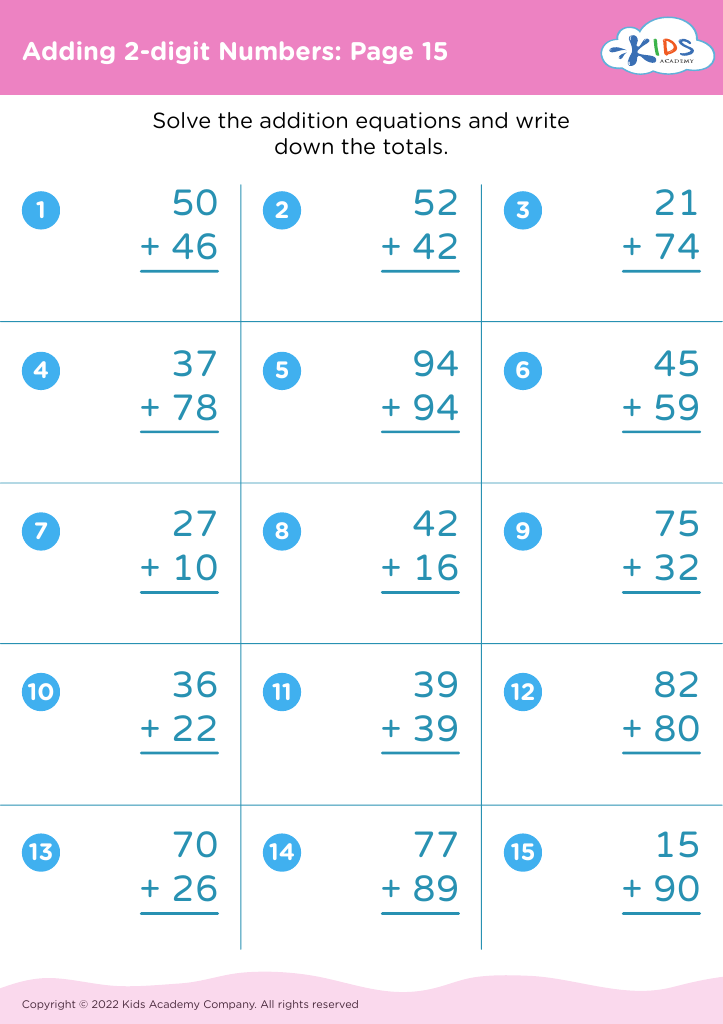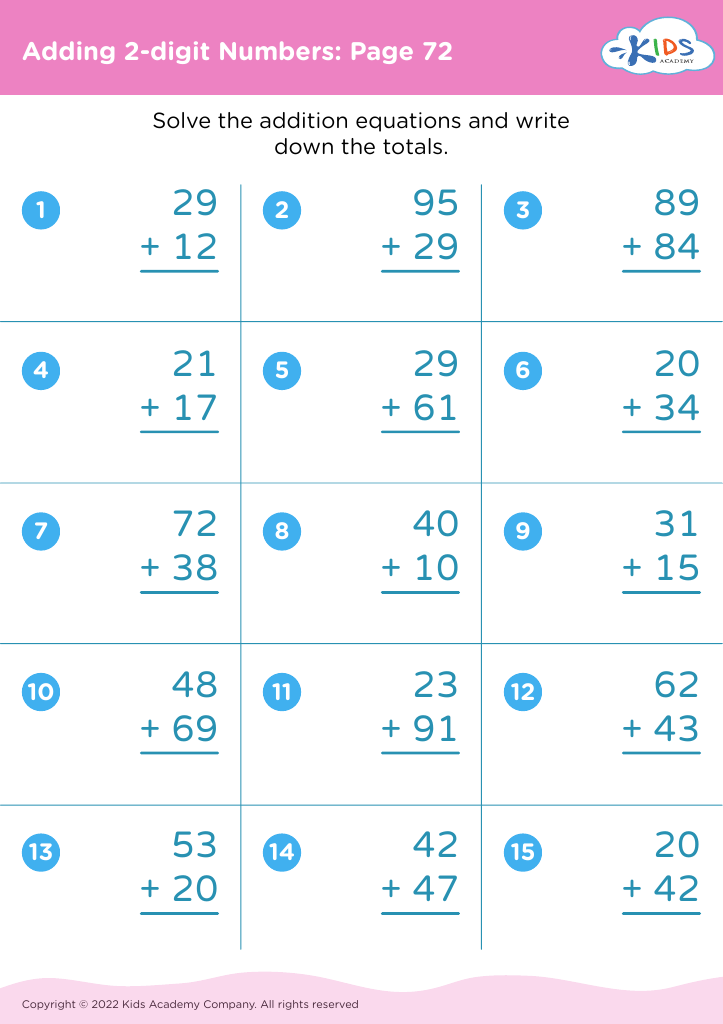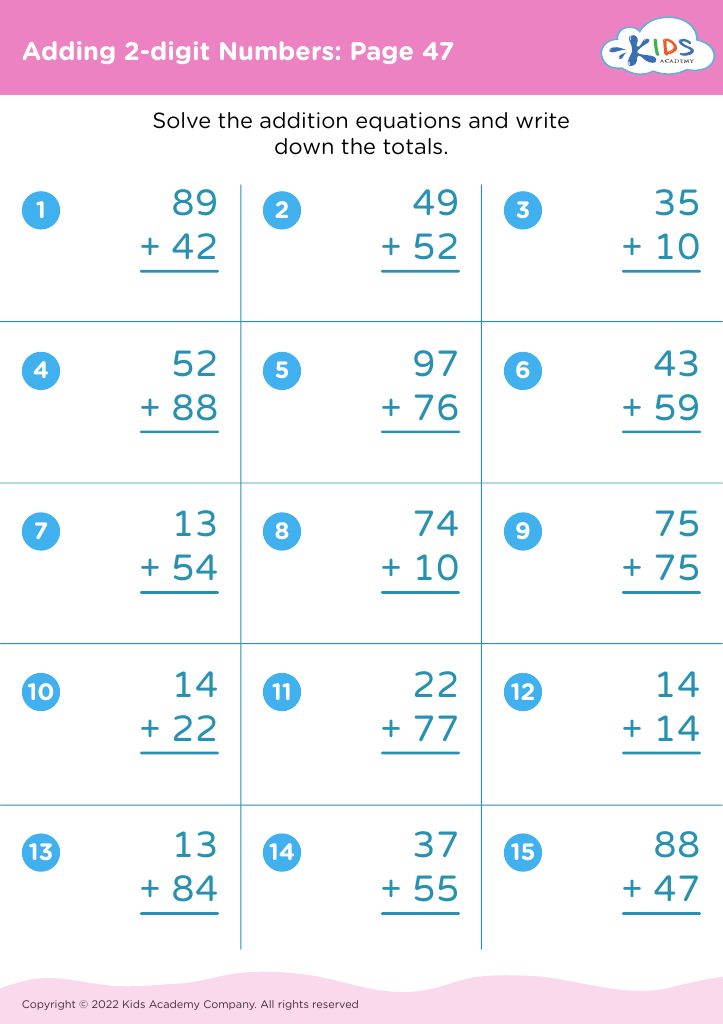Comparing Fractions Adding 2-digit Numbers Worksheets for Ages 4-8
6 filtered results
-
From - To
Introducing our captivating "Comparing Fractions Adding 2-digit Numbers Worksheets" tailored for ages 4-8! These worksheets blend foundational math concepts with engaging activities to enhance mathematical skills. Young learners will explore comparing fractions while mastering the addition of 2-digit numbers, ensuring comprehensive understanding. Interactive and visually appealing exercises make learning fun and effective. Perfect for classroom and home use, our worksheets cater to diverse learning styles, fostering confidence and proficiency in math. Equip your child with the essential tools they need to succeed, starting with our expertly designed and easy-to-follow practice sheets. Visit now to kickstart their mathematical journey!
Introducing concepts like comparing fractions and adding 2-digit numbers to children aged 4-8 sets a strong foundation for future mathematical success. For parents and teachers, it's vital to pay attention to these areas early on for several reasons. Firstly, early exposure to mathematical concepts fosters a positive attitude towards math. This positive attitude often translates into confidence and eagerness to tackle more complex problems in later years.
Secondly, comparing fractions helps children develop number sense—a critical skill. Understanding fractions allows children to grasp that numbers can describe parts of a whole, which is fundamental in everyday life, from cooking to budgeting.
Adding 2-digit numbers enhances children's arithmetic skills and reinforces their understanding of place value. Mastering these skills at a young age aids in problem-solving and logical thinking, which are essential in both academic and real-world situations.
Moreover, engaging with these concepts through games, stories, or puzzles makes learning fun and engaging, fostering a love of learning. Therefore, by prioritizing these fundamental concepts, parents and teachers can ensure children are well-prepared for future educational challenges, thus setting them on a path to lifelong academic and personal success.



























